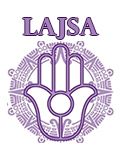Latin American Jewish Studies Association (LAJSA)

Latin America has long been assumed to be an exotic (at best) or irrelevant (at worst) locale of Jewish life and culture. Imagined to be inhospitable for Jews due to Inquisitions old and new, it received scant scholarly attention in either Jewish or Latin American Studies. For the former, Jewish Latin Americans were too few in comparison to the numbers that, fleeing Europe, found a home in North America, and in Palestine/Israel; if they entered into focus, it was as objects of persecution by the Inquisition or as gauchos on the Argentine pampas. Perhaps, Eichmann’s capture or the seemingly selective targeting of Jews during the recent Argentine dictatorship reminded some of the existence of thriving and complex Jewish communities to the South. For Latin American Studies scholars, the small number of Jews in comparison to other immigrant groups, relegated Jews and their communities to invisibility: they were not as iconic as, say, indigenous people or Italians. LAJSA, the Latin American Jewish Studies Association, was founded in 1982 to provide a space where those involved in the field could meet and share their work. Since then, this organization has fostered dialogue with scholars in the hopes that we can expand knowledge of and show the relevance of this region and its Jews.
The research of LAJSA members constitutes a bridge between Jewish and Latin American Studies. The study of Jewish Latin America is pertinent to our contemporary global understanding of Jewish identities, communities, and diaspora that extends across borders to explore the complex reality of Jews, Jewishness, and Judaism, as we witness the transformation of Latin America from a destination of immigration to a homeland for Jewish transnational communities. Recent scholarship includes diverse approaches and themes, such as how major Latin American intellectuals—both Jewish and non-Jewish—reacted to and influenced perceptions of the Holocaust; the growing body of poetry, fiction, and drama by Jewish Latin American writers; the cinematic representation of Jewish lives and history; multidisciplinary approaches to how countries like Argentina, Brazil, Cuba, Mexico, and Uruguay became centers for Yiddish literature, journalism, political activism, theater, and music, revealing how Latin America was mapped within these transnational networks; and numerous studies of gender and sexuality in Jewish Latin American literature. Other examples include anthropological, sociological, literary, and historical approaches to Sephardic communities in Argentina, Halebi and Shami communities in Mexico, and multiethnic Jewish communities in Brazil. It is this type of engaging scholarship that LAJSA contributes to expanding our understanding of and appreciation for the richness of the Jewish experience over time and across geographical boundaries.
LAJSA organizes an International Research Conference every two years and regional conferences in between: our next International Conference will be at the University of Curaçao from June 28-30, 2020. LAJSA has also just launched its academic journal Latin American Jewish Studies.